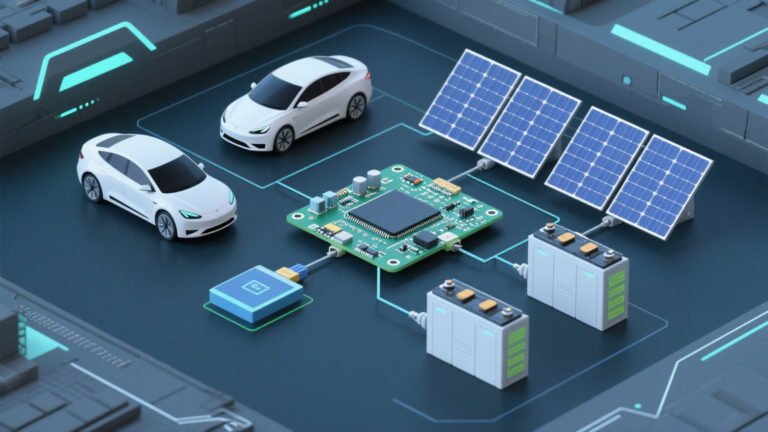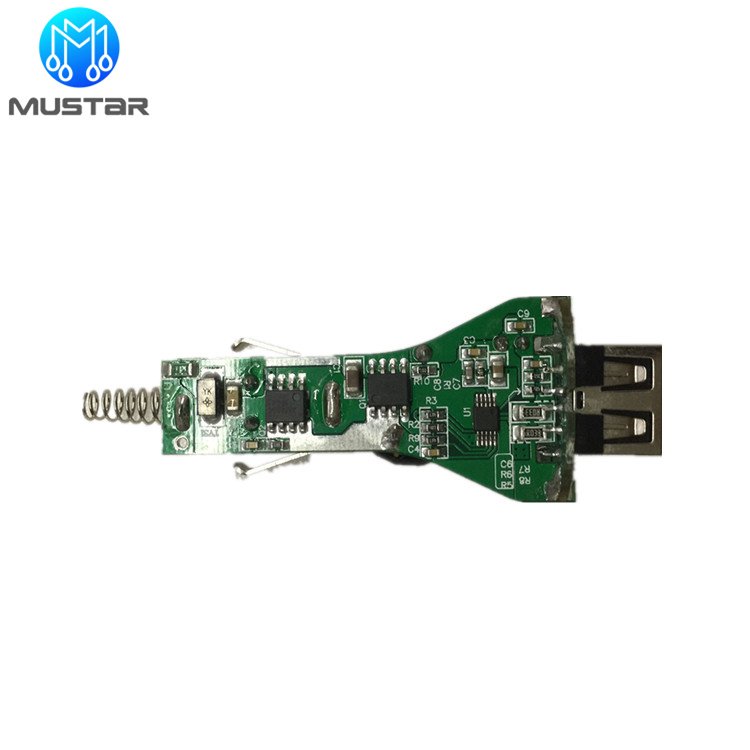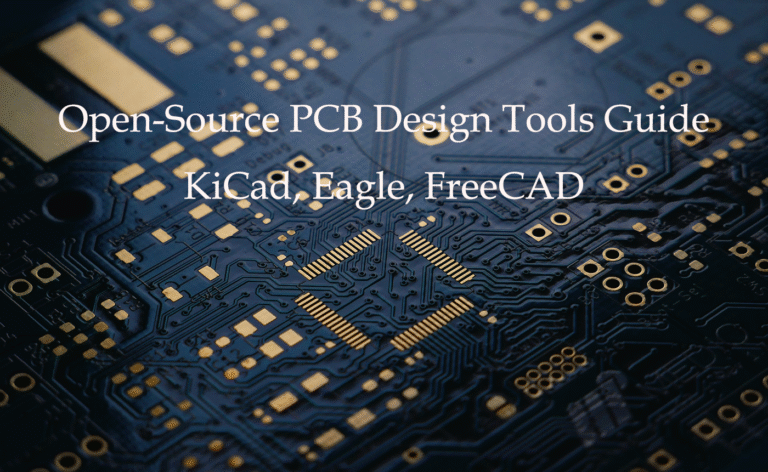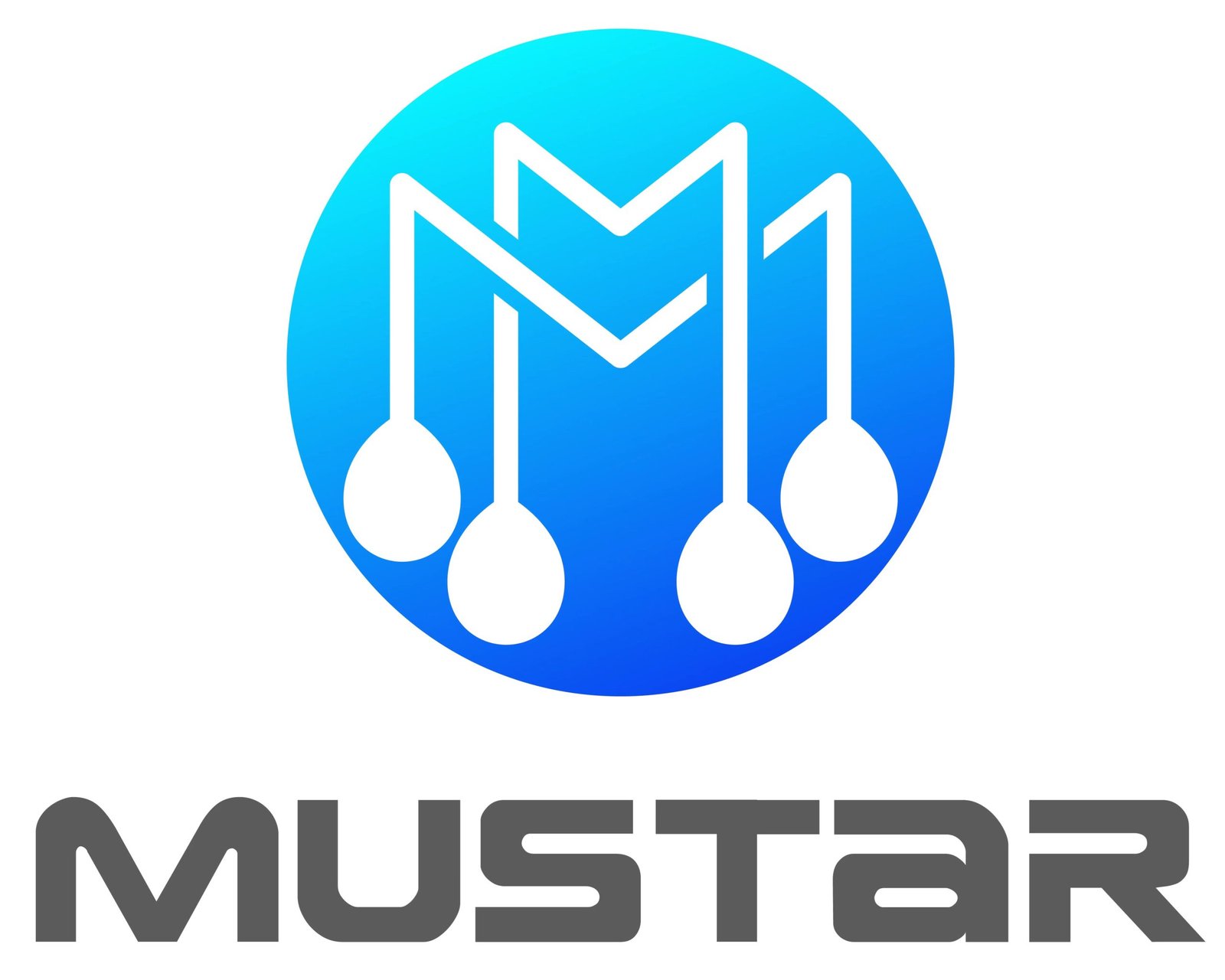🚗 Key Automotive PCB Assembly Statistics at a Glance
| Metric | Data | Impact |
|---|---|---|
| Global Market Size (2023) | USD 9.79 billion | Rapid industry growth |
| Market Growth Rate | 6.1% CAGR (2025-2032) | Strong future demand |
| Passenger Vehicle Share | 70% of market | Largest application segment |
| Leading Region | Asia Pacific (38% share) | Manufacturing hub advantage |
The automotive PCB assembly market is experiencing tremendous growth as vehicles become increasingly electronic. From basic engine controls to advanced autonomous driving systems, modern cars rely heavily on sophisticated printed circuit boards. This comprehensive guide explores everything you need to know about automotive PCB assembly, from manufacturing processes to industry standards.
Contents
What is Automotive PCB Assembly?
Automotive PCB assembly is the specialized process of manufacturing and assembling printed circuit boards designed specifically for vehicle applications. Unlike standard electronics, these boards must withstand extreme temperatures, constant vibrations, and harsh environmental conditions while maintaining perfect reliability.
“Automotive PCB assembly integrates various electronic components such as sensors, microcontrollers, and connectors to support critical vehicle functions like engine control, safety systems, and infotainment.”
The key difference between automotive and regular PCB assembly lies in the stringent quality requirements. Automotive PCBs must meet strict automotive standards and undergo rigorous testing to ensure they perform flawlessly in life-critical situations.
Types of Automotive PCBs
Different vehicle systems require different types of PCBs. Understanding these variations helps manufacturers choose the right solution for each application:
Rigid vs. Flexible vs. Rigid-Flex Boards
- Rigid PCBs: Most common type used in automotive applications. These boards provide excellent mechanical stability and are perfect for engine control units and dashboard electronics.
- Flexible PCBs: Ideal for applications requiring movement or tight spaces, such as door controls and seat adjustment systems.
- Rigid-Flex PCBs: Combine the benefits of both types, commonly used in advanced infotainment systems and complex automotive electronics.

Multi-layer PCBs (Fastest Growing Segment)
Multi-layer PCBs are becoming increasingly popular in automotive applications. These boards offer several advantages:
- Higher component density for compact designs
- Better signal integrity and reduced electromagnetic interference
- Improved thermal management capabilities
- Support for complex automotive electronics like ADAS systems
HDI PCBs for Compact Designs
High-Density Interconnect (HDI) PCBs are revolutionizing automotive electronics by enabling smaller, more powerful systems. Furthermore, these boards use advanced manufacturing techniques like blind and buried vias to achieve maximum component density.
Key Materials and Components
The materials used in automotive PCB assembly are specially selected to withstand harsh automotive environments while maintaining excellent electrical performance.
Substrates (Ceramic, Polyimide)
Automotive PCBs commonly use specialized substrate materials:
- Ceramic substrates: Provide excellent thermal conductivity and stability for high-power applications like engine control modules
- Polyimide substrates: Offer superior flexibility and temperature resistance, perfect for flexible automotive PCBs
- FR-4 with high-TG: Enhanced glass transition temperature for better thermal performance
Copper Thickness Specifications (150-200 µm)
Automotive PCBs typically feature thicker copper layers compared to standard electronics. The standard copper thickness ranges from 150-200 µm, providing several benefits:
- Higher current carrying capacity for power applications
- Better thermal dissipation to prevent overheating
- Improved reliability under mechanical stress
- Enhanced durability in harsh automotive environments
Specialized Automotive Components
Modern automotive PCBs incorporate various specialized components designed specifically for vehicle applications. These include automotive-grade microcontrollers, sensors, and connectors that meet strict automotive quality standards.
The Assembly Process Explained
The automotive PCB assembly process involves several critical steps that ensure the highest quality and reliability standards.
SMT vs. THT Technologies
Surface Mount Technology (SMT) is the primary assembly method for automotive PCBs because it offers:
- Higher component density and smaller board sizes
- Better performance at high frequencies
- Improved reliability through automated assembly
- Lower manufacturing costs for high-volume production
Through-Hole Technology (THT) is still used for components requiring high mechanical strength, such as connectors and power components that experience significant stress.
Double-Sided Assembly Challenges and Solutions
Double-sided automotive PCB assembly presents unique challenges that require specialized solutions:
- Component placement optimization: Careful planning to avoid conflicts between top and bottom components
- Thermal management: Strategic placement of heat-generating components to prevent hot spots
- Assembly sequence: Proper order of operations to ensure all components are correctly placed and soldered
Quality Control Steps
Automotive PCB assembly requires multiple quality control checkpoints throughout the manufacturing process. These include automated optical inspection (AOI), in-circuit testing (ICT), and functional testing to ensure every board meets automotive standards.
Critical Standards and Certifications
Automotive PCBs must comply with stringent industry standards to ensure safety and reliability in vehicle applications.

ISO/TS 16949 and AEC-Q100 Requirements
ISO/TS 16949 (now IATF 16949) is the international standard for automotive quality management systems. This standard ensures that automotive PCB manufacturers maintain consistent quality processes throughout production.
AEC-Q100 is the automotive electronics council standard that defines qualification requirements for integrated circuits used in automotive applications. Compliance with this standard ensures components can withstand automotive environmental conditions.
EMC/EMI Compliance Importance
Electromagnetic Compatibility (EMC) and Electromagnetic Interference (EMI) compliance are critical for automotive PCBs. Modern vehicles contain numerous electronic systems that must coexist without interfering with each other.
“EMC compliance ensures that automotive PCBs can withstand electromagnetic interference while not generating interference that could disrupt other vehicle systems.”
Why These Standards Matter
Automotive standards are not just bureaucratic requirements – they represent decades of industry experience in ensuring vehicle safety and reliability. Additionally, these standards help manufacturers deliver consistent quality while meeting regulatory requirements in different markets worldwide.
For more detailed information about automotive electronics standards, refer to the SAE International automotive electronics standards.
Major Automotive Applications
Automotive PCBs power virtually every electronic system in modern vehicles. Understanding these applications helps appreciate the critical role of quality assembly.
Safety Systems (Airbags, ABS)
Safety-critical systems represent the most demanding applications for automotive PCBs:
- Airbag control modules: Must respond within milliseconds to deploy airbags during crashes
- Anti-lock Braking Systems (ABS): Prevent wheel lockup during emergency braking
- Electronic Stability Control (ESC): Help maintain vehicle control during extreme maneuvers
- Advanced Driver Assistance Systems (ADAS): Support features like collision avoidance and lane departure warning
Infotainment and Connectivity
Modern vehicles feature sophisticated infotainment systems that rival smartphones in complexity. These systems require high-performance PCBs capable of processing multimedia content while maintaining connectivity with external devices and networks.
Engine Control and Power Management
Engine Control Units (ECUs) are among the most complex automotive PCB applications. These systems manage fuel injection, ignition timing, emissions control, and numerous other engine parameters to optimize performance and efficiency.
Current Market Trends
The automotive PCB assembly market is experiencing rapid transformation driven by several key trends that are reshaping the industry.
Market Size and Growth (6.1% CAGR)
The global automotive PCB market reached USD 9.79 billion in 2023 and is projected to grow at a compound annual growth rate (CAGR) of 6.1% from 2025 to 2032. This growth is significantly higher than many other electronics sectors, reflecting the increasing electronic content in vehicles.
According to Grand View Research, several factors are driving this remarkable growth:
- Increasing vehicle electrification and hybrid adoption
- Growing demand for advanced safety and driver assistance systems
- Rising consumer expectations for connectivity and infotainment features
- Regulatory requirements for enhanced vehicle safety systems
EV and ADAS Impact
Electric Vehicles (EVs) and Advanced Driver Assistance Systems (ADAS) are revolutionizing automotive PCB requirements. Electric vehicles require sophisticated battery management systems, power inverters, and charging controllers – all of which demand high-performance PCBs.
ADAS systems are becoming standard equipment in new vehicles, requiring complex sensor fusion, real-time processing, and communication capabilities. These systems significantly increase the PCB content per vehicle while demanding higher reliability and performance standards.
Regional Leaders (Asia Pacific 38% Share)
The Asia Pacific region dominates the automotive PCB market with a 38% market share in 2025. This leadership position is driven by:
- Major automotive manufacturing hubs in China, Japan, and South Korea
- Strong electronics manufacturing infrastructure
- Competitive cost structures and skilled workforce
- Growing domestic automotive markets
Common Challenges and Solutions
Manufacturing high-quality automotive PCBs presents unique challenges that require specialized solutions and expertise.
Thermal Management
Modern vehicles generate significant heat from various electronic systems. Effective thermal management is crucial for automotive PCB reliability:
- Heat sink integration: Incorporating thermal vias and heat spreaders into PCB design
- Material selection: Using high thermal conductivity substrates and copper layers
- Component placement: Strategic positioning to minimize hot spots and ensure even heat distribution
- Thermal simulation: Using advanced modeling to predict and optimize thermal performance
Vibration Resistance
Automotive environments subject PCBs to constant vibration and mechanical stress. Solutions include:
- Reinforced component mounting techniques
- Flexible-rigid PCB designs for stress relief
- Conformal coating applications for added protection
- Advanced materials that maintain flexibility under stress
Miniaturization Requirements
The demand for smaller, more powerful automotive electronics drives continuous miniaturization challenges. Manufacturers address these through HDI technology, advanced packaging techniques, and multi-layer designs that maximize functionality in minimal space.

Why Choose Professional Assembly Services
The complexity and critical nature of automotive applications make professional assembly services essential for success in this demanding market.
Benefits of Working with Certified Manufacturers
Professional automotive PCB assembly providers offer several critical advantages:
- Industry expertise: Deep understanding of automotive requirements and standards
- Advanced equipment: State-of-the-art manufacturing and testing capabilities
- Quality certifications: Compliance with ISO/TS 16949, AEC-Q100, and other automotive standards
- Supply chain management: Reliable component sourcing and inventory management
- Technical support: Engineering assistance for design optimization and problem-solving
Mustar’s Automotive Expertise and Certifications
Mustar stands out as a leading provider of automotive PCB assembly services with over 25 years of industry experience. The company’s automotive capabilities include:
- IATF 16949 certification ensuring automotive quality management compliance
- 500+ automotive PCB types successfully manufactured and delivered
- Dedicated automotive production lines with 6 specialized SMT lines for automotive and medical applications
- Advanced testing capabilities including ICT, FCT, 3D X-Ray, and AOI for comprehensive quality assurance
- Professional engineering support with over 50 component sourcing engineers
Furthermore, Mustar’s comprehensive approach includes everything from PCB fabrication to final assembly and testing, providing customers with a true turnkey solution for their automotive PCB needs.
For additional insights into automotive PCB manufacturing best practices, visit the IPC Automotive Electronics Guidelines.
Conclusion: Your Partner for Automotive PCB Excellence
The automotive PCB assembly industry is experiencing unprecedented growth and transformation. As vehicles become increasingly electronic and autonomous, the demand for high-quality, reliable PCB assembly services continues to accelerate. Success in this market requires not just technical expertise, but also deep understanding of automotive standards, quality requirements, and emerging technologies.
From safety-critical airbag systems to advanced infotainment platforms, automotive PCBs must perform flawlessly in the most demanding environments. This requires specialized materials, advanced manufacturing processes, rigorous testing, and unwavering commitment to quality standards like IATF 16949 and AEC-Q100.
🚀 Ready to Accelerate Your Automotive Electronics Project?
Partner with Mustar for world-class automotive PCB assembly services backed by 25+ years of industry expertise and IATF 16949 certification.
✓ IATF 16949 Certified ✓ 500+ Automotive PCB Types ✓ 25+ Years Experience
Don’t let PCB quality compromise your automotive innovation. Contact Mustar today to discuss your automotive PCB assembly requirements and discover how our expertise can accelerate your time-to-market while ensuring the highest quality standards. Whether you need prototype or high-volume production, our dedicated automotive team is ready to support your success.
Mustar projects




